Five times former President George Bush 'legitimised' repressive regimes
Jeb Bush laments Obama's rapprochement with the Cuban dictatorship - but looking a little closer to home may help
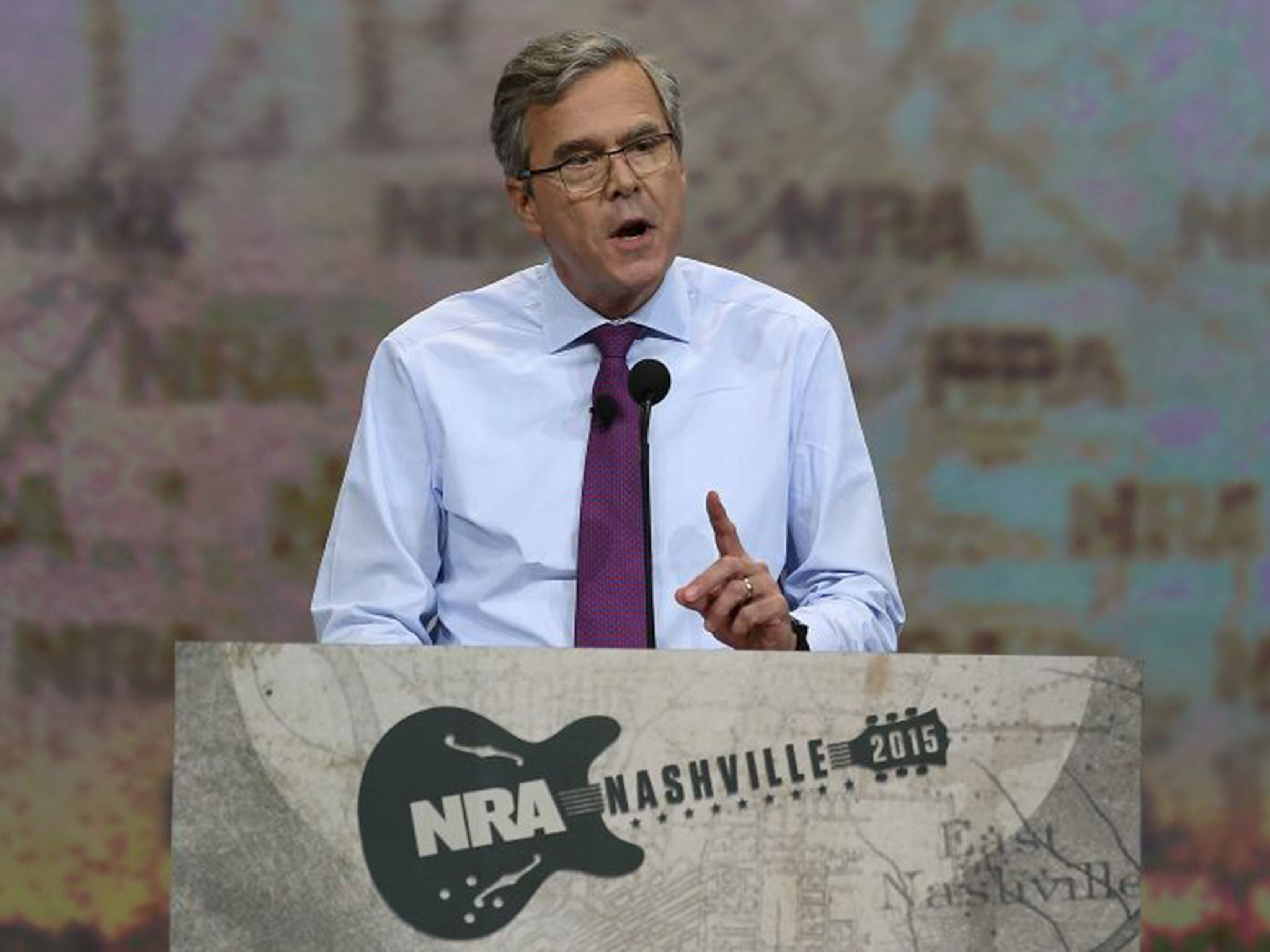
Your support helps us to tell the story
From reproductive rights to climate change to Big Tech, The Independent is on the ground when the story is developing. Whether it's investigating the financials of Elon Musk's pro-Trump PAC or producing our latest documentary, 'The A Word', which shines a light on the American women fighting for reproductive rights, we know how important it is to parse out the facts from the messaging.
At such a critical moment in US history, we need reporters on the ground. Your donation allows us to keep sending journalists to speak to both sides of the story.
The Independent is trusted by Americans across the entire political spectrum. And unlike many other quality news outlets, we choose not to lock Americans out of our reporting and analysis with paywalls. We believe quality journalism should be available to everyone, paid for by those who can afford it.
Your support makes all the difference.On 10 April, Barack Obama ended a political stalemate that has lasted half a century when he shook hands with President Raúl Castro of Cuba.
The President described the meeting, which was almost universally hailed as a positive breakthough, as “historic” – but not everyone was pleased.
The not-quite-presidential-candidate and accidental Latino, Jeb Bush, took to Twitter to ask: "Why legitimize a cruel dictator of a repressive regime?"
Rather than asking his 175,000 followers this question, Jeb could have looked for answers closer to home, starting with his brother, George W, who met with repressive regimes on more than one occasion...
King Abdullah of Saudi Arabia
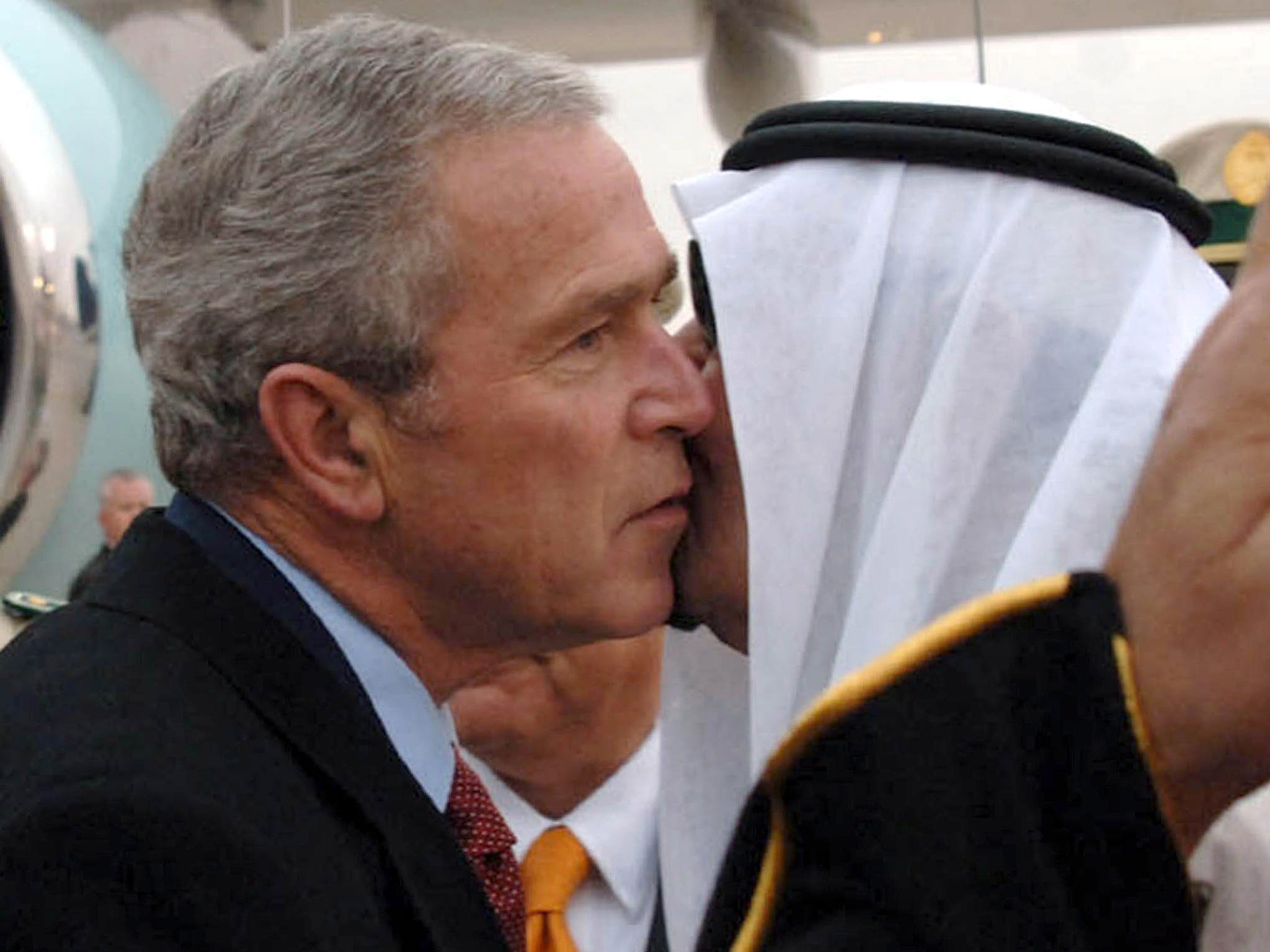
The relationship between the Bush family and the House of Saud is well documented but still unsettling, given the Saudi Royalty’s penchant for fundamentalism and abusing power.
During his presidency Bush met with King Abdullah of Saudi Arabia many times and was papped in a number of intimate situations with the man.
The king ascended to the throne in 2005. During his reign he set up a secretive committee to ensure the transfer of power within the family, oversaw the Al-Yamamah arms deal and imprisoned hundreds of reformers during the Arab Spring.
Ilham Aliyev
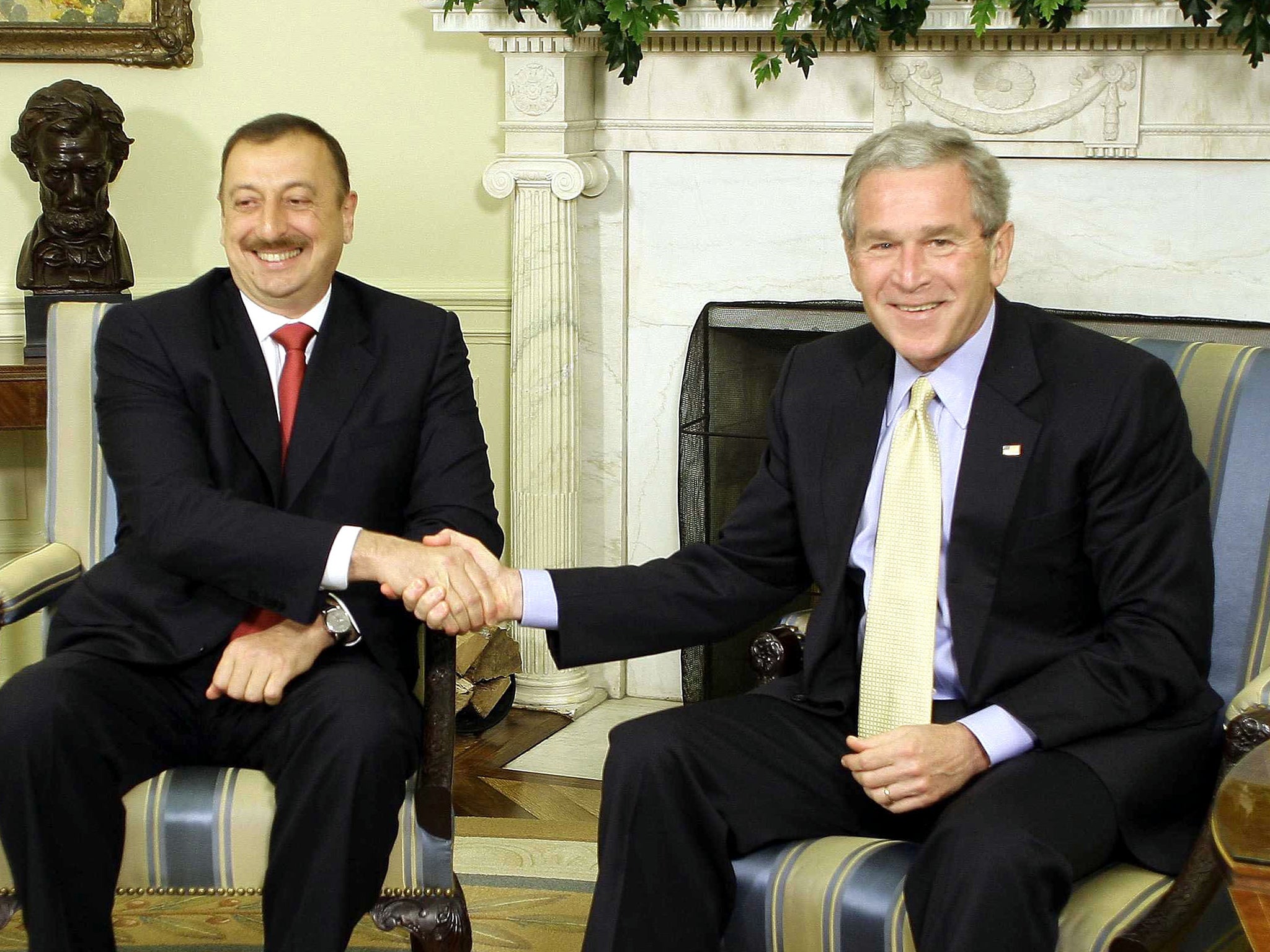
In 1996 Governor Bush made Ilham an honorary Texan for all the good work he did allowing US oil companies into Azerbaijan.
Their relationship remained on good terms when Aliyev was voted to replace his ex-KGB father in 2003. Non-government organizations were banned from monitoring the votes and the election was widely held to be corrupt.
Secretary of State Donald Rumsfeld visited Azerbaijan six weeks after the election and toasted his victory.
Years of human rights abuses failed to make Bush rethink his friendship with Aliyev. When he was re-elected in another corrupt election in 2008, Bush congratulated him and said: “We support Azerbaijan’s efforts directed in strengthening democratic institutions.”
Hosni Mubarak
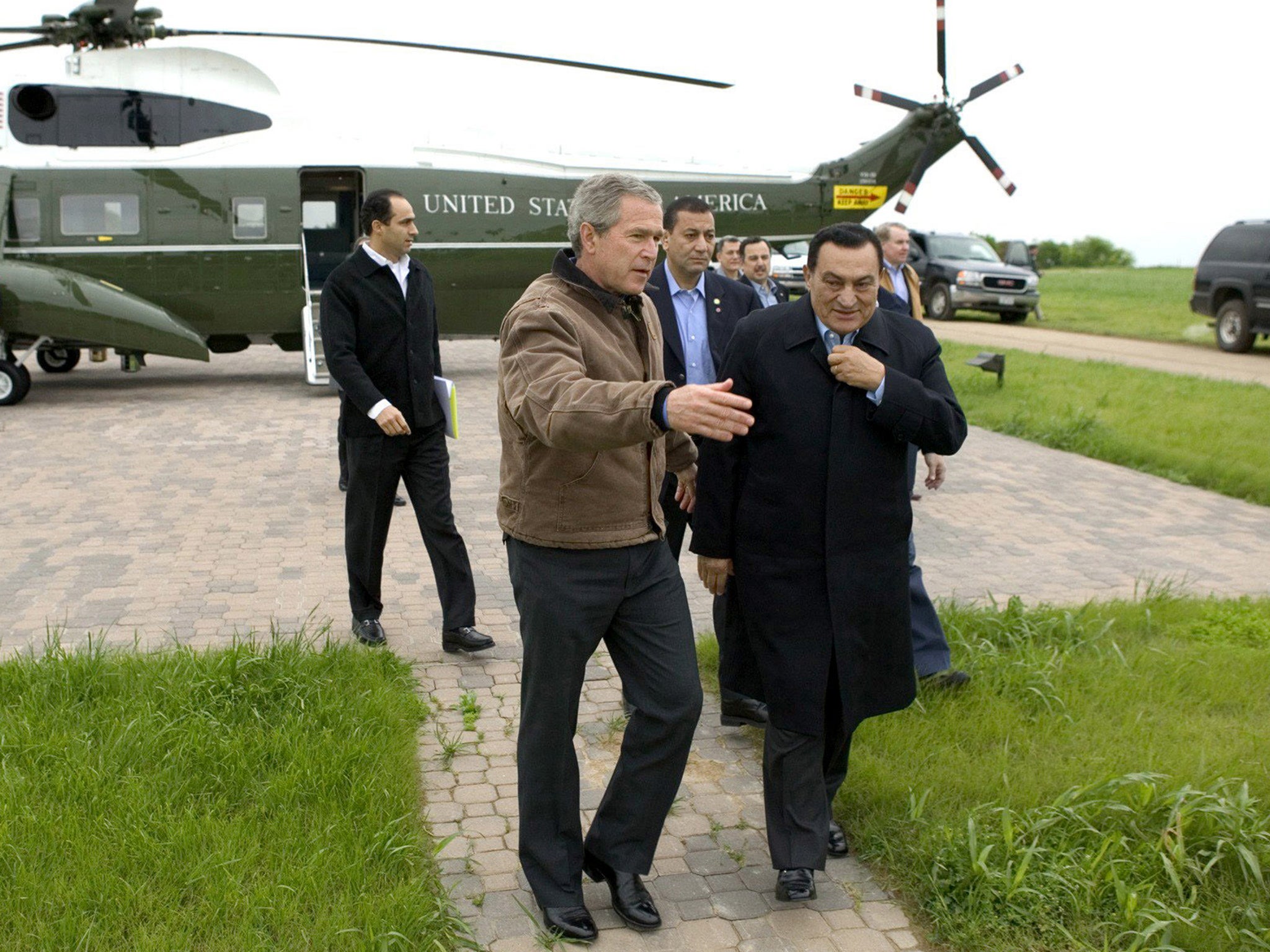
Mubarak had been in power for nearly thirty years before he was ousted during the 2011 Arab Spring.
After the Egyptian uprising, Human Rights Watch said that torture and police abuse under Mubarak were one of the main factors in the protests.
Between 1993 and 2008 there were 460 reported cases of torture and 167 deaths due to ill-treatment.
When Bush met Mubarak in 2008 he said ““I appreciate the example that your nation is setting.”
General Pervez Musharraf
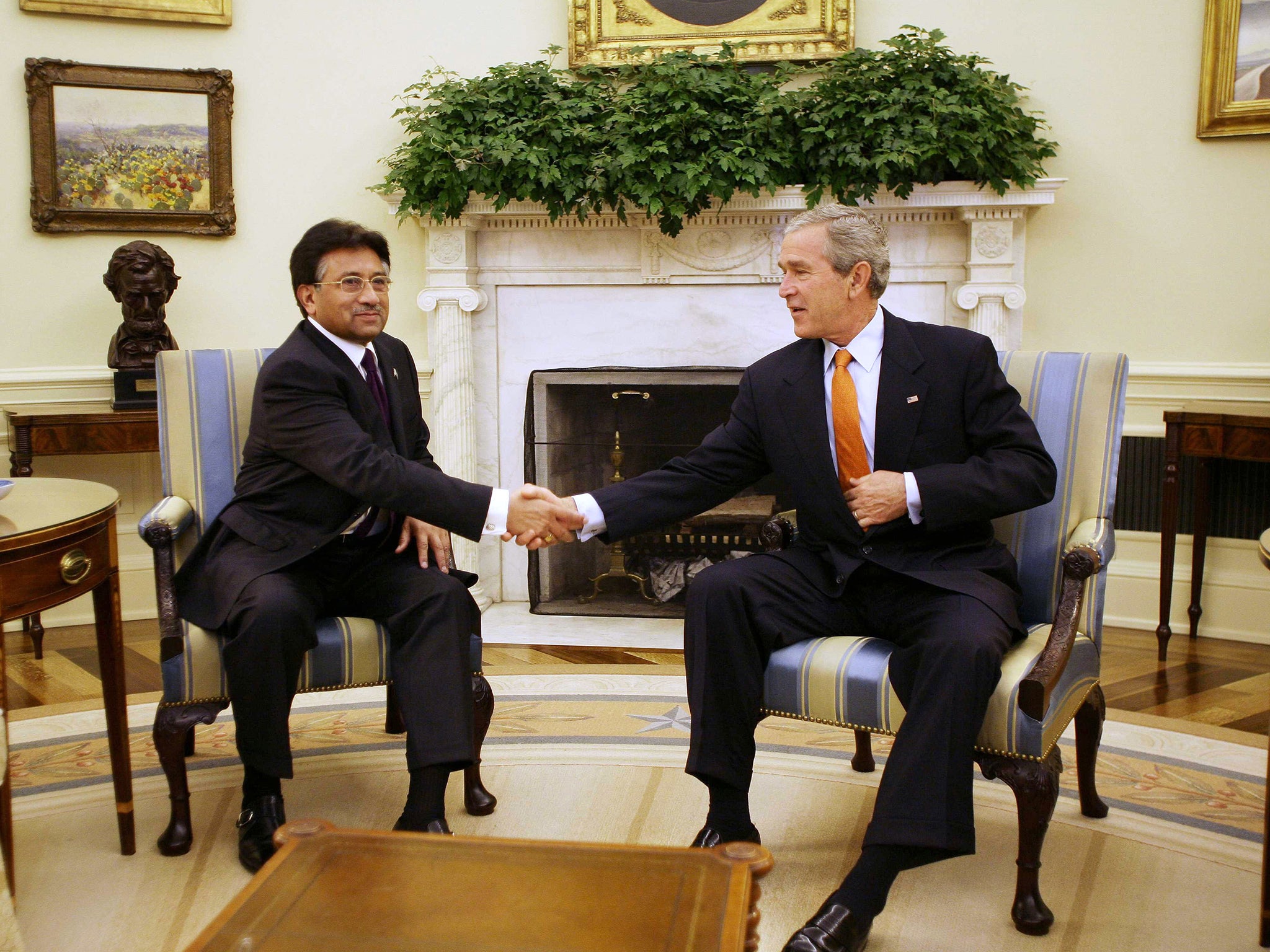
General Pervez Musharraf took control of Pakistan in a coup. He suspended constitutional rule twice during his time in office and ordered the detention of 10,000 critics. He has been charged with involvement in the murders of a Baloch leader and Pakistan’s former prime minister, Benazir Bhutto.
George W managed to look past all this, though, calling the general “a leader with great courage and vision”. Bush stayed a night in Pakistan at the general’s request and invited him to Camp David in 2003.
Islam Karimov
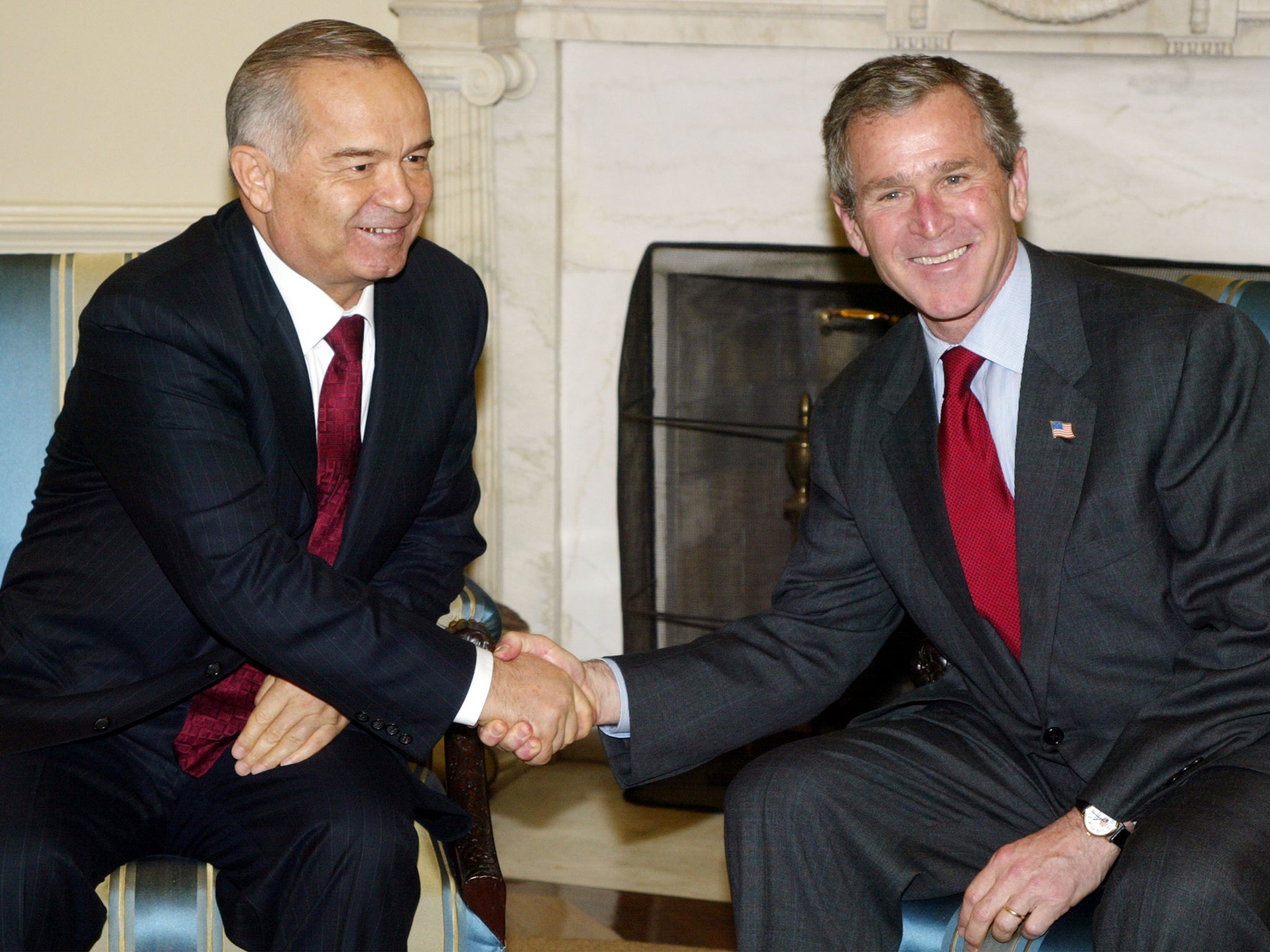
For many years the US condemned Islam Karimov’s regime in Uzbekistan. The country’s economy relies heavily on child and forced labour and its security service is infamous for its brutality and widespread powers.
All that changed after 9/11 and in 2002 Bush pledged $500m in aid to Uzbekistan, $79m of which went to the security services. Bush went on to sign a declaration of support for Uzbekistan’s law enforcement agencies.
Join our commenting forum
Join thought-provoking conversations, follow other Independent readers and see their replies
Comments